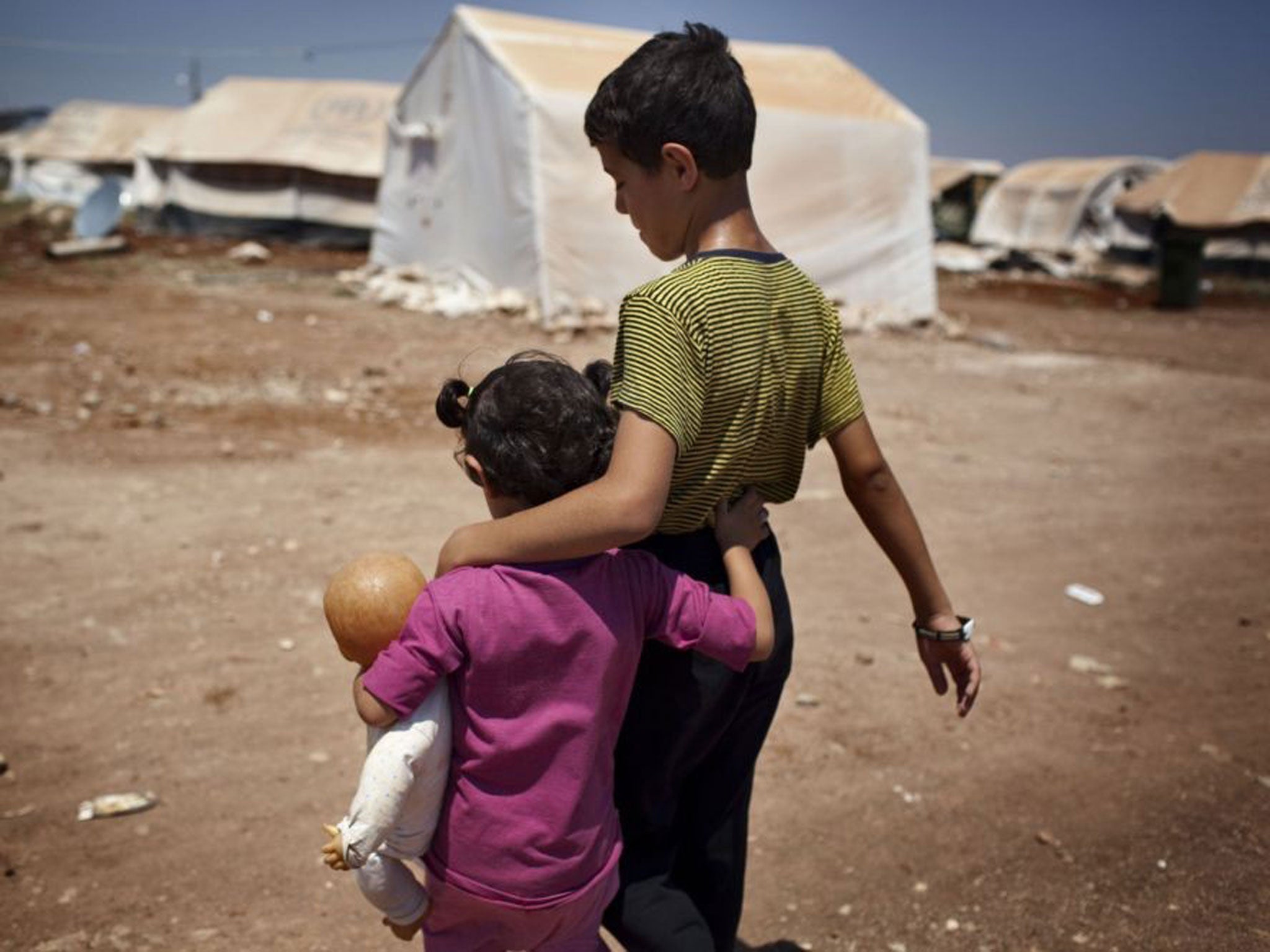Dr Rowan Williams: As the first Syrian refugees arrive in the UK, we must now promise our support for more humanitarian action
This is an opportunity to register more clearly the scale of the ongoing disaster


The UK has had a proud tradition of welcoming those whose lives have been ravaged by violence, persecution and discrimination – Uganda Asians, Vietnamese, Kosovans and many more, back to the Kindertransport which saved the lives of Jewish children from Germany in the 1930s.
Whatever grumblings and anxieties we are encouraged to express by some elements in the media, the fact is that most people in the UK know when a crisis demands generosity. They recognise that they are dealing not with distant statistical realities, but with families and children whose needs are like their own.
So the arrival of a small number of refugees from Syria under the Government’s Vulnerable Persons Relocation Scheme is very much in tune with this tradition. The number may not be large, but it gives us an opportunity to register more clearly the scale of the humanitarian disaster that has overtaken not only Syria but the whole region. These are people who have suffered trauma, humiliation and fear that we cannot imagine, rape, torture and constant terror.
It is good that the Government– in accordance with the Foreign Secretary’s declared concerns about victims of torture and gender-related violence – has opened the door to them, albeit after considerable pressure from the Refugee Council and others. We, the public, now need to promise our support for more humanitarian action, globally co-ordinated.
It is not only Syria’s problem. Neighbouring countries – Lebanon, Jordan, Turkey, Iraq, Egypt – have between them received nearly two and a half million refugees. They have had no choice in the matter. And these are countries ill-equipped to absorb such a level of need, given the instability, stress and stretched resources many of them are already living with. Plenty is being done on the ground by various agencies like Christian Aid and others; working with courageous groups within Syria who take the gravest risks for the sake of the care of vulnerable people in the country (two of those working with Christian Aid’s local partner have been killed in recent months).
But there needs to be globally co-ordinated action – as the UN refugee agency (UNHCR) has recently insisted, appealing for governments round the world to provide an additional 100,000 resettlement places to refugees from Syria in 2015 and 2016.
We have to keep up pressure in our own and other governments to stand together in this drive for a global resettlement strategy, along with pressure for a firm guarantee of humanitarian access to communities under siege.
It may suit some to portray the arrival of refugees as another drain on our resources. Indeed, this has been said at every important point in the last century when Britain stepped up to shoulder its moral responsibilities to those at mortal risk. And at every point the compassionate and hospitable instinct of the British people triumphed over the negative voices and sour predictions.
We can hardly be happy that such help is needed, but we can reasonably be thankful that the UK is still able to honour its historic commitments to those who have been the victims of tyranny and atrocity. And we can hope that it will set the pace for the development of a global response to one of the most appalling humanitarian catastrophes of our era.
Join our commenting forum
Join thought-provoking conversations, follow other Independent readers and see their replies
Comments